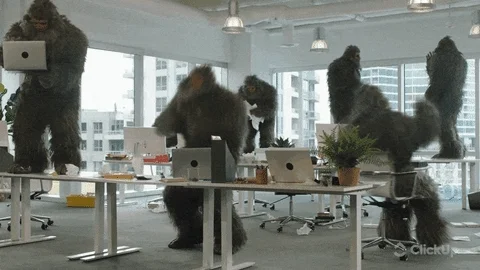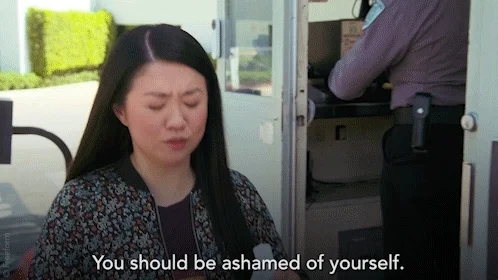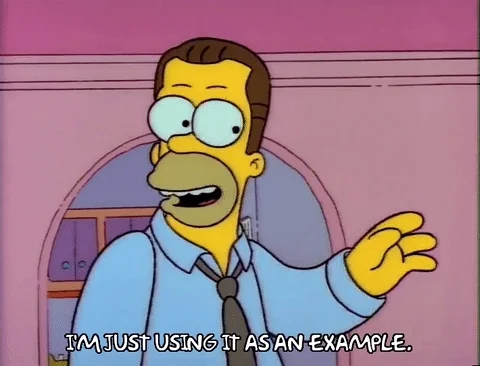Imagine this: You're nailing the interview, then BAM! You're asked: "What irritates you about other people?"
Suddenly, your mind is racing with an endless list of people's annoying habits, but you know you can't go on a 20-minute rant.

So, what does the interviewer expect you to say? Breathe easy — you can do this!
Shift The Focus
Why does an interviewer want to know about your pet peeves anyway?
They don't!
This isn't really about what irritates you at all. So, focus on what the interviewer actually wants to know.
How you work as part of a team.
Your emotional intelligence.
Which soft skills you have.
How you handle interpersonal challenges.

By focusing on these things, rather than how much you hate it when people chew with their mouths open, you'll do two things.
First, you'll give the interviewer an answer that's relevant to the job.
Second, you'll demonstrate maturity and positivity that'll make you more hireable.
Choose Your Irritation Wisely
Now that you know what the question is really getting at, you can think about how to answer it. But there are some pitfalls to avoid here:
Claiming to not be annoyed by anything. This is an obvious lie. ❌
Airing personal gripes about your siblings or friends. This is unprofessional. ❌
Complaining about everything everybody does. This is far too negative. ❌
Instead, talk about an irritation that's relevant to a professional setting. If you have some work experience, you've probably come across some annoyances.

The unreliable colleague: They slack off and miss deadlines. ✅
The open-door policy abuser: They constantly interrupt your workflow with silly questions and trivial chatter. ✅
The micromanager: They hover over your shoulder and question every decision. ✅
If you haven't had any experience in the world of work yet, don't worry. You can think about times you've worked as part of a team in projects or extracurricular activities.

The idea killer: They shoot down every suggestion but don't offer any alternatives. ✅
The credit grabber: They quickly claim any praise for the project, but contributed very little. ✅
The communication black hole: They never respond to messages or updates, leaving everyone in the dark. ✅
The important thing is to talk about something that relates to a professional setting and which you can discuss in a constructive way.
Use the STAR Method
 What the interviewer really cares about is how you deal with irritations. So, a great approach is the STAR method.
What the interviewer really cares about is how you deal with irritations. So, a great approach is the STAR method.
Situation
Task
Action
Result
Situation
Paint the picture! Briefly describe the context of the situation.
Where were you? When did this particular experience take place? What was your role or responsibility at the time?

Task
Explain your mission.
What task were you trying to complete? What obstacle did the irritation cause?

Action
Time to be the hero!
Detail the steps you took to tackle the challenge. How did you use your soft skills to deal with the annoyance and resolve the issue?

Result
And the dragon was slain!
Describe the outcome. Did you ultimately achieve your goal? What did you learn from it? How have you grown since?

The STAR Method in Action
Situation: "During team meetings at my previous job, a colleague frequently interrupted others, which was very frustrating."
Task: "I needed to address this to improve overall team communication, but I had to be careful not to cause conflict."
Action: "I discussed the issue privately with the colleague, highlighting the impact on productivity and, together, we implemented a designated time for open discussions."
Result: "The colleague became more mindful, and team meetings became more focused and efficient."

Test Your Knowledge

Alex is interviewing for a paralegal role with a law firm. Having aced all the technical questions, she's feeling confident and comfortable. Then, the interviewer leans forward and asks, "What irritates you about other people and how do you deal with it?"
Alex recalls a really annoying person at college, who constantly missed deadlines when working on team projects.
After describing the situation and task, how should she talk about her action?
A. "I confronted the person directly and expressed my frustration, stressing the importance of meeting deadlines."
B. "I tried to understand the reasons behind the issue, offered my assistance, and found a collaborative solution to ensure deadlines were met."
C. "I kept my frustration to myself, completed my part of the work independently, and avoided relying on them."
D. "I reported the person to the lecturer to ensure accountability and maintain a high standard of work."
Quiz
Which answer would most impress the interviewer?
Take Action
Face your next job interview full of confidence so that you can answer any awkward questions about your pet peeves!
 Photo by Brett Jordan on Unsplash
Photo by Brett Jordan on UnsplashTake these next steps:
Your feedback matters to us.
This Byte helped me better understand the topic.

